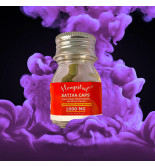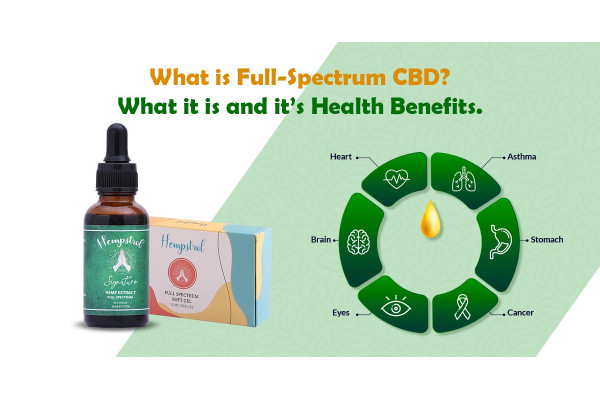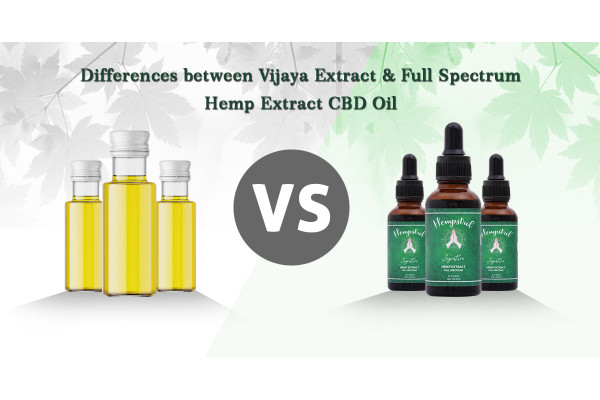Can Cannabidiol Oil Help In Treating Drug Addiction?
Do you know what is the worst thing about Substance use disorders, such as drug addiction? This condition is more prone to relapse due to drug cues, vulnerability to stress, anxiety, and poor impulse control. As the number of individuals suffering from drug addiction is increasing, there is a greater demand for effective therapeutic procedures and treatments and CBD, to some extent, can help. What is CBD and in which area it can help, questions like this and more will be answered in this blog.
 (2).jpg)
What is CBD?
Cannabidiol (CBD) is a cannabis ingredient that, in its purest form, is neither intoxicating nor addictive, making it an appealing prospect for use as a therapeutic medicine. Previous studies have revealed that cannabidiol oil India may be useful when used for reducing seizures in patients with epilepsy and has anti-inflammatory properties.
.jpg)
The Neurological Aspects of Addiction and CBD's Potential Role
Addiction is a complicated and multidimensional disorder that has a profound impact on the brain's neuronal connections.
Here's how: Drugs and alcohol can increase the production of specific neurotransmitters, leading to feelings of euphoria. Over time, the brain becomes reliant on the substance to experience pleasure or avoid discomfort. The amygdala, prefrontal cortex, and nucleus accumbens are brain areas that play critical roles in addiction. These sections manage decision-making, emotional responses, and the reward system.
Substances can disrupt homeostasis. Chronic substance use can upset the brain's natural balance, making rehabilitation difficult.
With the increasing popularity of cognitive behavioural treatment for substance use disorders, the relationship between CBD and the endocannabinoid system has received attention. The endocannabinoid system, which is natural to our bodies, regulates mood, stress, and pleasure. CBD's interaction with this system may help restore balance, relieve withdrawal symptoms, and lessen cravings. CBD binds to receptors in the brain and is thought to inhibit the endocannabinoid system, which has receptors throughout the brain and body. The endocannabinoid system regulates mood, hunger, memory, and pain feeling. CBD binds to the serotonin and adenosine receptors, influencing pain perception and inflammation. CBD, unlike marijuana, does not bind to CB1 and CB2 receptors in the brain, which means that while it behaves like a drug, it does not produce the same "high" that drug use does.
.jpg)
Is it effective in controlling drug addiction?
CBD has recently gained popularity due to its ability to cure drug and alcohol misuse. The studies focus on CBD's pharmacotherapeutic potential, specifically its importance in preventing drug relapse. CBD is hypothesized to be beneficial in targeting risk states for drug relapse by lowering anxiety and tension associated with drug signals and influencing antidepressant activity. Furthermore, CBD has an effect on the brain circuitry that controls drug craving and seeking behaviours prompted by drug-related contexts and stress.
CBD's neuropharmacological and behavioural effects, as well as its impact on the neurocircuitry that controls addiction, have piqued the interest of the research community in developing new treatments for drug addiction and relapse.
The findings of this study shed light on two aspects of CBD's potential. First, CBD reduces relapse symptoms such as sensitivity to drug context and stress, decreased impulse control, and anxiety. This demonstrates CBD's potential capacity to refine vulnerability states that induce relapse. Second, despite the brief duration of the medication, CBD had a long-lasting effect on the animals. The disparities between these animal studies, which could be related to variances in methodology, highlight the need for further research into this contentious area of analgesic effects. Researchers are now focusing their efforts on exploring CBD's ability to decrease cravings associated with substance misuse.
 (1).jpg)
CBD's Potential Benefits and Effects on Addiction Recovery
Slowly making your way back from addiction might be difficult, but there are tools available to help make the process easier. Among these, using CBD in addiction recovery is gaining popularity as a viable treatment. When strategically included in a holistic treatment strategy, CBD may provide numerous advantages that address both the physical and emotional aspects of recovery.
Managing Anxiety and Stress: Many people in recovery experience increased worry and stress levels. Symptoms include:
Racing thoughts
Increased heart rate
Feeling overwhelmed.
Irritability
Panic attacks
CBD may help alleviate some of these symptoms by potentially reducing worry and stress which helps to reduce the likelihood of relapse thus, paving the path for emotional stability and well-being.
 (1).jpg)
Pain Relief and Medication Dependency: Pain, whether emotional or physical, is common during the recovery from addiction. Here are some of the common pain types:
Muscles ache
Joint discomfort.
Headaches
Stomach discomfort.
.jpg)
Supporting Neuroprotection and Cognitive Function: As addiction takes its toll on the brain, the importance of neuroprotection becomes clear. Long-term substance misuse can also have a negative impact on cognitive function.
.jpg)
Neuroprotective properties: Emerging research constantly emphasises CBD's potential as a brain protector. These studies suggest that CBD may work tirelessly to counteract damage by reducing inflammation and preventing oxidative stress, both of which are prominent causes of neuronal deterioration. For people whose neural pathways and brain structures have weathered the storm of prolonged drug or alcohol abuse, CBD's neuroprotective role may provide a beacon of hope, aiding in the rehabilitation and preservation of vital brain functions.
.jpg)
Boosting Cognitive Function: As we dive deeper into the field of holistic rehabilitation, the potential of CBD as a cognitive booster becomes apparent. Incorporating CBD into addiction recovery may improve mental clarity and cognitive function, resulting in sharper thinking. Enhanced cognition allows for better-informed decision-making and strengthens an individual's resolution and determination, all of which are critical components in sustaining steadfastness on the road to recovery.
At last,
There is an ongoing discussion about the legal medical use of marijuana and cannabinoids. While cannabis and its derivatives have been used successfully in medicine, there are still worries regarding their short- and long-term negative effects, such as drug dependence and the development of psychotic disorders. There is currently limited data to support the use of CBD to treat drug addiction. Preclinical trials are conducted on animals, with few human investigations. To present, no clinical trials on people have been done, and it will be critical to assess the long-term effects of CBD consumption after one week of intervention. Although CBD is a viable contender for drug addiction treatment, further research is needed before it can be utilised safely and medical intevention is important before buy cbd oil.













%20(1)-600x450.jpg)




